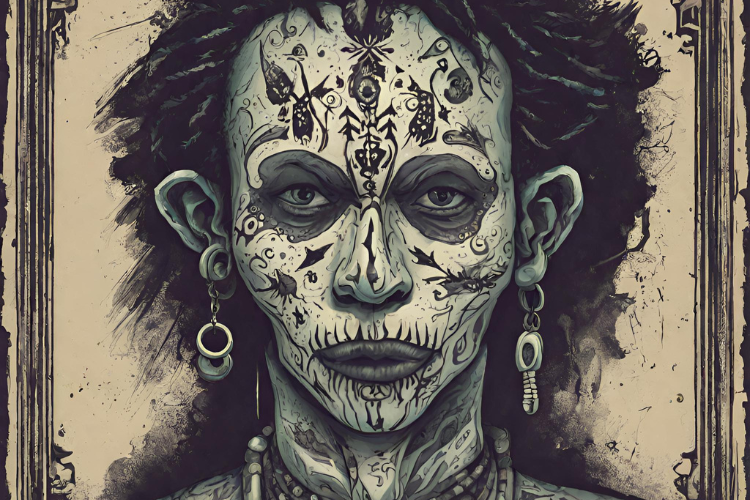Voodoo, also known as Vodou or Vodun, is a religion practiced primarily in Haiti and parts of Africa. Within the Voodoo tradition, there are specialized practitioners known as Voodoo doctors or priests who play a significant role in local communities. These Voodoo doctors are believed to have the power to communicate with spirits, perform rituals, heal the sick, and provide guidance to their followers. This article will take a closer look at the role of Voodoo doctors in local communities, exploring their practices, beliefs, and influence.
Understanding Voodoo
Before delving into the role of Voodoo doctors, it is essential to understand the basic tenets of the Voodoo religion. Voodoo is a syncretic religion that combines elements of African, Catholic, and indigenous beliefs. Central to Voodoo is the belief in a supreme creator, known as Bondye, who is distant and uninvolved in human affairs. In addition to Bondye, Voodoo practitioners worship a pantheon of spirits, known as lwa, who act as intermediaries between humans and the divine.
Voodoo doctors, also known as Houngans or Mambo, are priests or priestesses who have undergone a rigorous initiation process to gain knowledge and power within the Voodoo tradition. These individuals are believed to have a special connection to the spirit world and possess the ability to communicate with the lwa through rituals, ceremonies, and trance-like states.
Healing and Spiritual Guidance
One of the primary roles of Voodoo doctors in local communities is to provide healing and spiritual guidance to their followers. Voodoo doctors are consulted for a wide range of physical, emotional, and spiritual ailments, including illness, infertility, relationship problems, and bad luck. Through ceremonies and rituals, Voodoo doctors are believed to have the power to heal the sick, protect individuals from harm, and bring good fortune to their clients.
Voodoo doctors may use a variety of tools and practices in their healing work, including herbs, candles, incense, and talismans. They may also perform rituals such as divination, spirit possession, and soul washing to diagnose and treat their clients’ conditions. Voodoo doctors often work closely with their clients to develop personalized treatment plans that address both their physical and spiritual needs.
Community Leadership and Social Cohesion
In addition to their role as healers and spiritual guides, Voodoo doctors also serve as community leaders and social organizers within local communities. Voodoo is a communal religion that emphasizes the importance of collective rituals, ceremonies, and celebrations. Voodoo doctors play a central role in organizing and leading these communal events, which serve to strengthen social bonds, promote unity, and foster a sense of belonging among community members.
Voodoo doctors are often respected and revered figures within their communities, and their leadership is essential for maintaining social cohesion and order. They mediate disputes, offer advice and counsel, and provide moral guidance to their followers. In times of crisis or conflict, Voodoo doctors are called upon to help restore harmony and balance within the community.
Cultural Preservation and Identity
Another important role of Voodoo doctors in local communities is the preservation of cultural traditions and identities. Voodoo is an integral part of Haitian and African cultural heritage, and Voodoo doctors play a crucial role in passing down knowledge, rituals, and practices from generation to generation. Voodoo doctors are responsible for teaching and training new priests and priestesses, ensuring the continuity of the tradition and the preservation of cultural heritage.
Voodoo doctors also serve as cultural ambassadors, representing their communities and traditions to the outside world. Through their work, Voodoo doctors help to challenge stereotypes and misconceptions about Voodoo, promoting a deeper understanding and appreciation of the religion and its practices.
Challenges and Controversies
Despite the important role that Voodoo doctors play in local communities, they often face challenges and controversies. Voodoo is still widely misunderstood and stigmatized, both within Haiti and around the world. Voodoo doctors and practitioners may face discrimination, persecution, and violence due to misconceptions and stereotypes about their religion.
Furthermore, the practice of Voodoo is not without its controversies. Some critics argue that Voodoo doctors exploit vulnerable individuals, charge exorbitant fees for their services, or engage in harmful practices. While there may be some truth to these criticisms in isolated cases, it is essential to recognize that most Voodoo doctors are motivated by a genuine desire to help their communities and uphold their traditions.
Conclusion
In conclusion, Voodoo doctors play a vital role in local communities, providing healing, spiritual guidance, community leadership, and cultural preservation. Despite facing challenges and controversies, Voodoo doctors continue to be valued and respected members of their communities, working tirelessly to support and uplift those in need. By gaining a deeper understanding of the role of Voodoo doctors in local communities, we can appreciate the richness and complexity of the Voodoo tradition and its profound impact on the lives of its followers.

